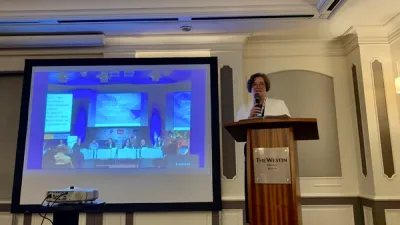Mythbusting: data sharing and privacy laws
Cross border data sharing is legally complex. Emily Taylor's keynote speech at the International Data Law Forum in Berlin, 2025, provides a background on the legal issues, draws parallels with the airline industry and safeguarding in health and social care, and points to signs of hope through voluntary, industry-led initiatives, such as the Global Signal Exchange.





